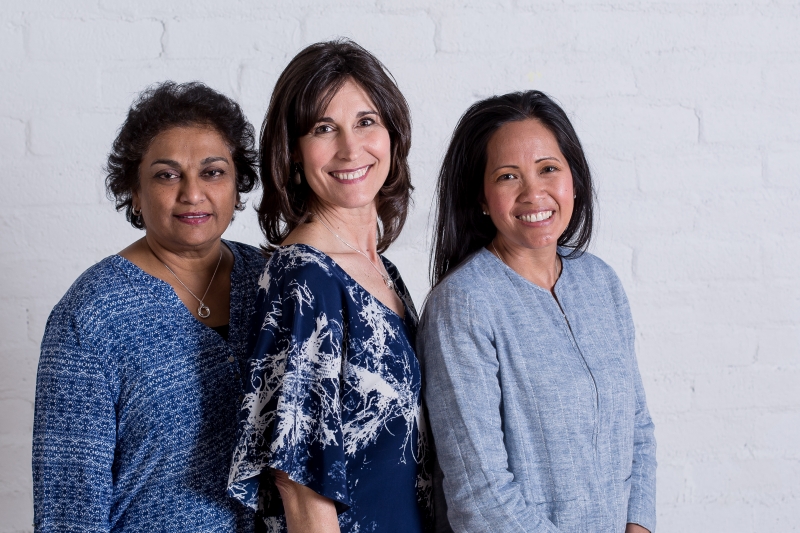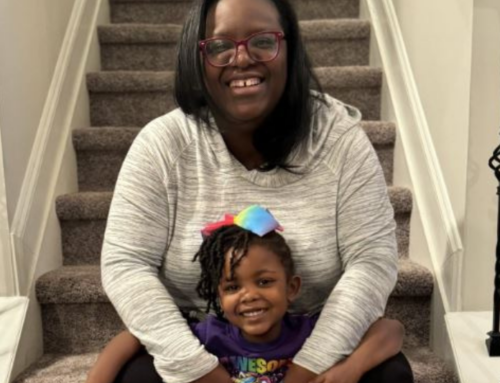The Addressing Health Disparities (AHD) Leadership Program is sponsored by the National Council for Behavioral Health (NCBH), and is in its 9th year of existence. CM partner Suganya has served as co-faculty for the program since the very first training. It has now transformed in the last 9 years into a far more in-depth experiential process for participants and is solely sponsored by the Council with leadership provided by Ms. Mohini Venkatesh, Vice President, Business & Strategy. During this period, Suganya and her co-faculty partner Jeanne Supin of Watauga Consulting, have evolved the initial program to the current version that is 9 to 10 month in length, and supports about 20 members per cohort.
AHD participants are emerging leaders within their organizations focusing on behavioral health services and supports. The curriculum includes 3 face to face meetings that includes panel presenters who are leaders in the field, didactic presentations, interactive sessions, individual assignments, and presentations. Through the training period participants also participate in webinars, in buddy assignments with several of their cohort members, and in individual coaching with trained coaches from Change Matrix. This program is an incredible opportunity to train, mentor, and coach incredible young women and men into transformative leaders who will change how we provide services of diverse populations.
 Celeste Nevarez – Chief of Clinical Services, Emergence Health Network, El Paso TX is currently a member of the 2019 cohort of emerging young leaders participating in the Addressing Health Disparities Leadership Program sponsored by the National Council for Behavioral Health.
Celeste Nevarez – Chief of Clinical Services, Emergence Health Network, El Paso TX is currently a member of the 2019 cohort of emerging young leaders participating in the Addressing Health Disparities Leadership Program sponsored by the National Council for Behavioral Health.
As part of our passion in supporting these leaders, we would like to share more about one of the dedicated AHD participants and her path to and through leadership.
Celeste was born and raised in El Paso, TX to very young beautiful parents. Her dad was actually the first of his family to go to college and graduated nine days after Celeste was born. Growing up, Celeste remembers spending a great deal of time in her grandmother’s beauty salon – sweeping hair. That’s when her concept of therapy began, as she watched her grandmother listening and providing solace to the many women who went to her hair salon. In her community, they would not have sought out therapy. However, in reality grandmother functioned like a therapist – women talked to her in that safe space. Celeste now perceives that she saw the first therapist in action at the salon as she listened to her grandmother and the other women in conversation.
Celeste along with her three siblings grew up in a closely-knit family in a closely connected community. Her community was in the lower valley typically recognized as a low SES neighborhood. Celeste grew up among the women in this community and had first-hand experience of their struggles, triumphs and saw her grandmother healing them through her hair care. She came to recognize that this way of caring was embedded in the Mexican culture and also realized that therapy could come in different forms and places. Celeste’s mother was an aerobics instructor and in this tight knit family Celeste would accompany her to the dance studio during her free time and came to love music and dance that still remains a passion for her to this day. This is another way to ease the soul in pain as she sees it.
After completing high school in El Paso, for the first time Celeste left her family and went off to Texas Tech (where her father had gone to college). As she recalls she “had a fantastic time”. El Paso has a strong Hispanic culture. Lubbock where Texas Tech is situated was definitely not the case and for the first time, she experienced racism as a young adult. This opened her eyes to how race relations truly plays out in this country.
She left for Tempe, AZ to complete her master’s degree at Arizona State University and then interned at Chicanos Por La Causa and felt that she was able to go back to her Hispanic roots. The organization offers mental health services and she completed her student internship before returning to El Paso. In El Paso, her work was two-fold: getting the community to produce therapists through a teaching position in the local college with the purpose of producing – more and quality therapists. She also worked with communities to understand the need to seek therapists when needed. Her second job was as a therapist with different community organizations serving people to address mental health needs in the community.
Celeste started teaching at the community college her subjects: Introduction to Psychology and Human Growth and Development. She then joined the University of Texas, El Paso as adjunct professor and is currently teaching legal and professional ethics as it pertains to counseling. Celeste loves teaching ethics as a homage to her mentor who first taught her about mental health counseling.
Everything Celeste does ties back to someone in her life – other women who guided her. As she says she “stands on the shoulders of giants,” her 19 year old mother who was always nurturing, her grandmother who taught her about the gift of listening. And now, according to Celeste, “I celebrate with my staff on every occasion because my mother did that and taught me the value of honoring everyone.”
Fortunately, according to Celeste, she “has had great mentors, faculty, supervisors” and learned what to do and what not to do. It has been a tumultuous journey for Celeste with “many many highs and equally low lows.” She has learnt from all that she has experienced. She has had many opportunities to be a leader – in volunteer work, having served as Texas Tech alumni president, and in the jobs she has taken on over the years.
Some of Celeste’s learnings:
“I often say this to myself: Be fearless, nothing is going to come easy and through the struggle, you will learn your way. We as a community, we are persistent.” Celeste quoted a Mexican proverb which translates to – they tried to bury us, they didn’t know we were seeds.
“Collaboration gets the needle moving so much faster than doing it alone – women sometimes feel they have to prove themselves so they try to go it alone. Through collaboration they can move forward so much more.”
“We are leaders who guide, because we are taught different lessons that are feminine – nurturing, caring and sometimes we feel it doesn’t belong in the workplace – but it absolutely does. The people we work with and lead do much better when we nurture them, it does not work against us women, it is our strength.”
“The person you are in biggest competition with should be yourself. You are told to compete with other women and in trying to outdo them, we forget to strengthen our own skill set.”
“Being a young leader, graduating at 22 and becoming a therapist, and running a psychiatric unit at 24 years of age was difficult because people did not take me seriously. I have learnt that my youth brings energy but I always have to remember that others have been there longer and have laid out the pavement that allows me to walk that path.” Celeste is now mentoring a 23 year old and is sending the ladder down to help her rise up.
On a personal note Celeste officially got engaged the day before the mass shooting, and because of the work that has suddenly fallen on her young and strong shoulders has not had the time to get serious about setting the wedding date. She is looking forward to planning a celebration of love and life with family and friends in the distant future.




